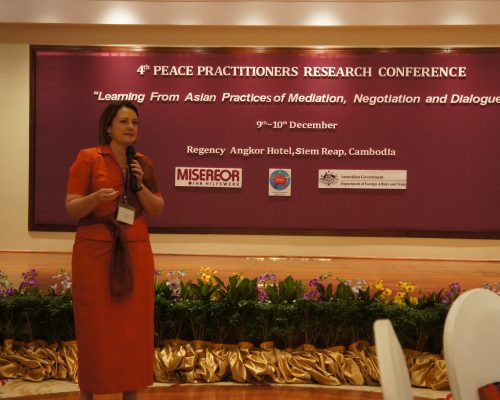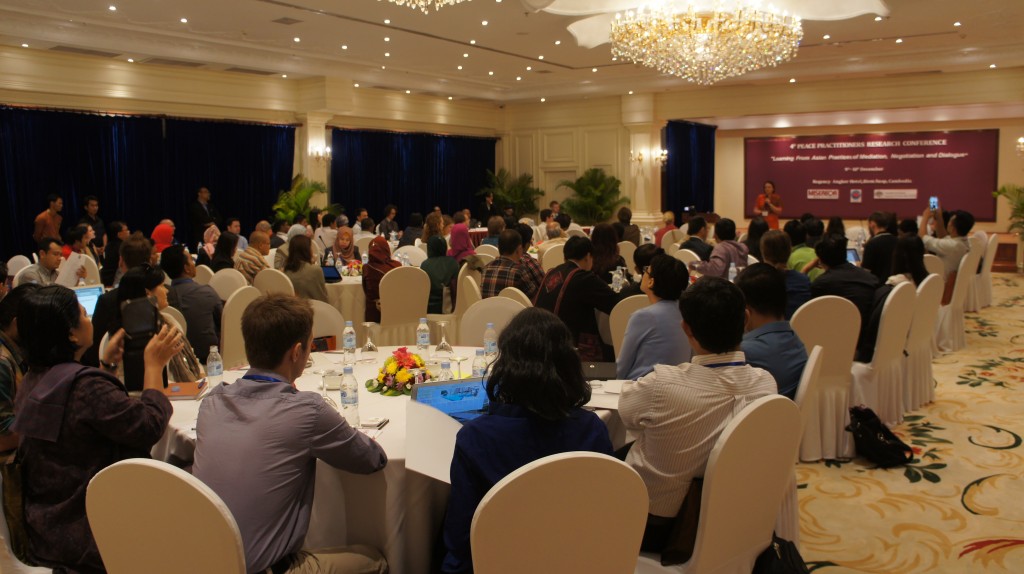
- About Us
- Publication
- ACTS Study
- Peace Conferences
- 2025 Peace Practitioners’ Research Conference
- 2024 Peace Practitioners’ Research Conference
- 2022 Peace Practitioners’ Research Conference
- 2020 Peace Practitioners Research Conference
- 2017 Peace Practitioners Research Conference
- 2016 Peace Practitioners Research Conference
- 2015 Peace Practitioners Research Conference
- 2014 Peace Practitioners Research Conference
- 2013 Peace Practitioners Research Conference
- 2012 Peace Practitioners Research Conference
- Contact Us
2015 Peace Practitioners Research Conference
2015 PEACE PRACTIONERS RESEARCH CONFERENCE
SIEM REAP, CAMBODIA
December 9-10, 2015
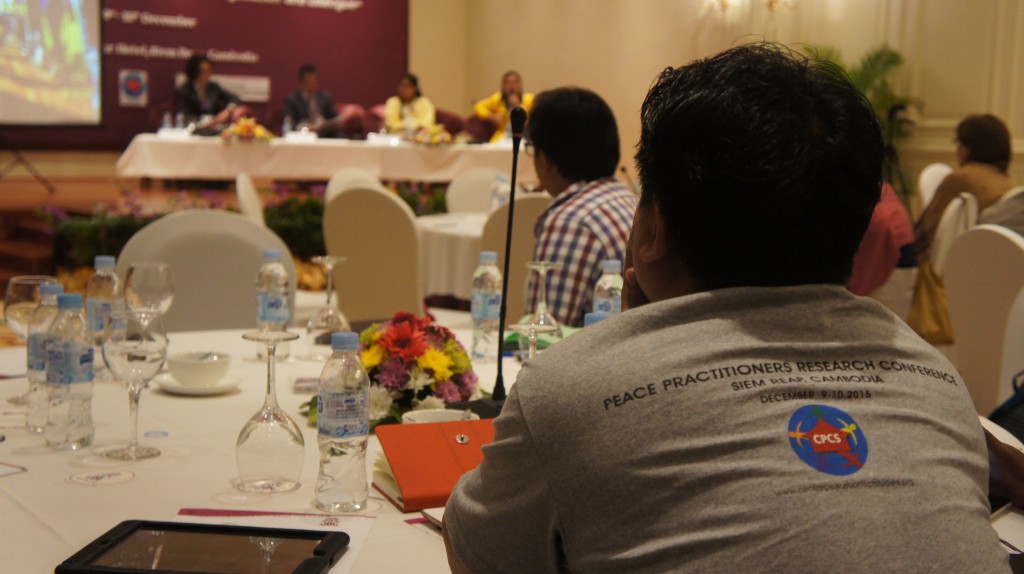
Learning from Asian practices of mediation, negotiation & dialogue
The 2015 Peace Practitioners Research Conference (PPRC) brought together more than 120 peace scholars and practitioners to critically reflect on lessons learned in the areas of mediation, negotiation and dialogue from current peace processes in the Asia region. Some of the most pressing questions facing scholars and peace practitioners were discussed over the two days of the conference, including:- What are some of the key innovations in regards to mediation, negotiation and dialogue in the Philippines and Myanmar?
- How can we distill some core ideas or principles from these experiences, especially in relation to the role of inclusivity in peace processes, the meaning of local ownership and the insider/outsider roles of the mediator?
- How can these points of learning be problematised? What are the key challenges and ways of overcoming them?
To engage these questions, participants heard from a range of voices active in both countries – from outside facilitators to conflict party negotiators, ceasefire monitors, transition commissioners and community dialogue facilitators.
Grounded learning
The conference provided a rich field for analysis, debate and learning, with a wide range of participants using practical examples from the region to articulate, refine and engage different perspectives on dialogue, mediation and negotiation in the Myanmar and Philippines peace processes.Conference materials
Below you’ll find the final agenda, presentations and links to videos of the speeches. To view more photos of the event, please visit our Facebook page. To download a presentation featuring the main themes raised during the conference, click here.Speakers
Visit the links below to watch the speeches or click here for the final agenda.- Emma Leslie, Executive Director of the Centre for Peace & Conflict Studies
- Keynote speaker Datuk Tengku Abdul Ghafar bin Tengku Mohamed, Malaysian facilitator of the Government of the Philippines and the Moro Islamic Liberation Front (MILF) peace process
- Ja Nan Lahtaw, Director of Nyein (Shalom) Foundation, co-facilitator of Myanmar ceasefire talks and technical advisor of ethnic armed organisations
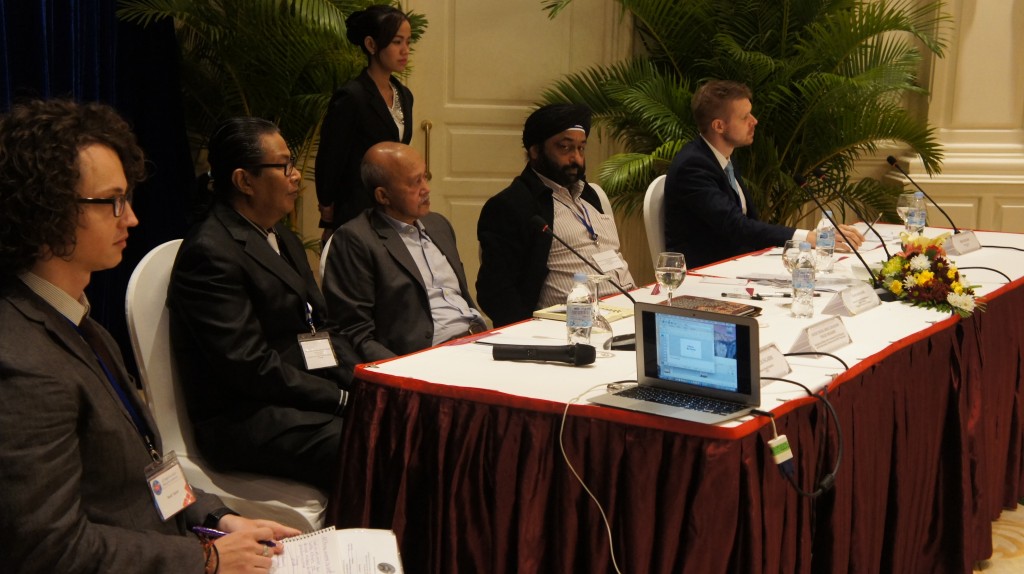
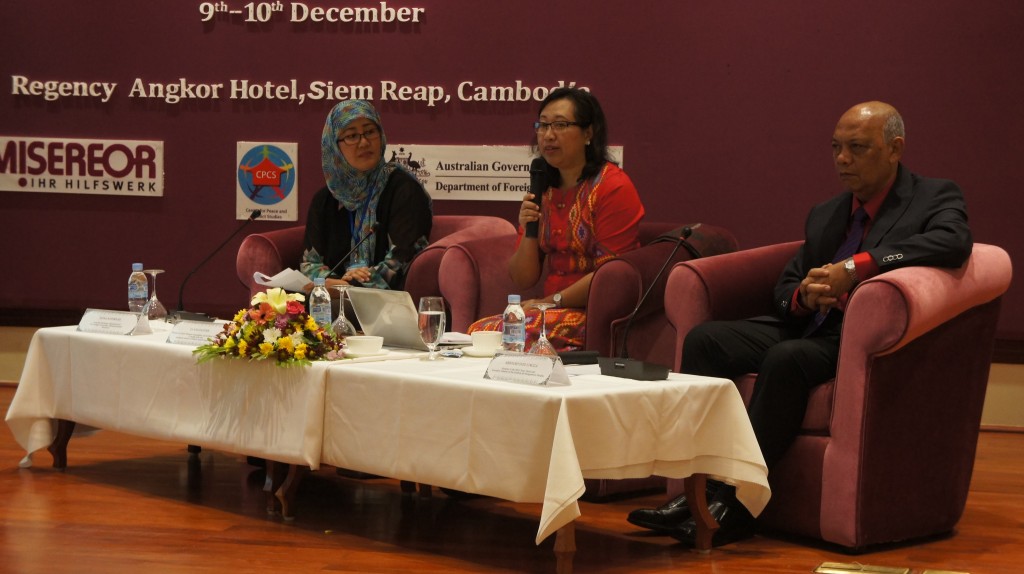
- Professor Abhoud Syed Lingga, member of the MILF Peace Panel and Executive Director of the Institute for Bangsamoro Studies
- Fred Lubang, National Coordinator of the Philippine Campaign to Ban Landmines and Regional Representative of Non-Violence International Southeast Asia
- Htet Oo Wai, Director of Myanmar-based conflict transformation and development organisation Pyi Nyein Thu Kha
